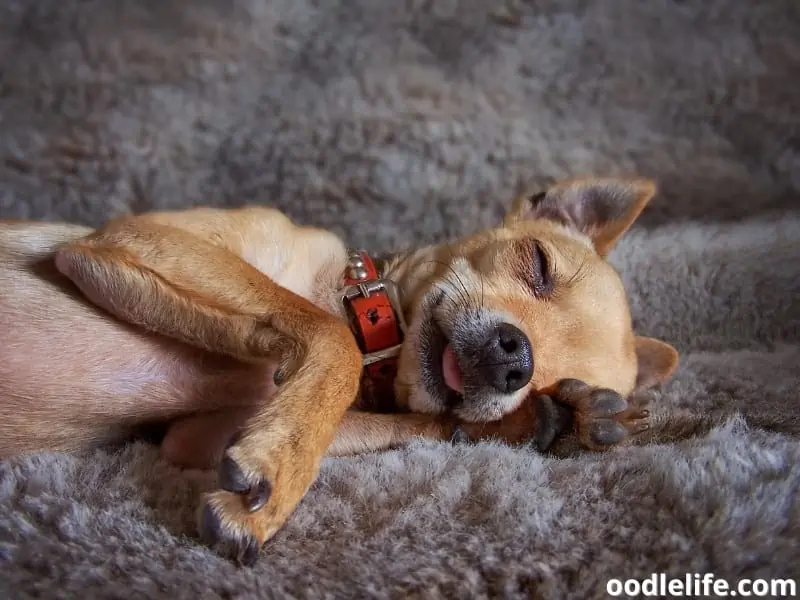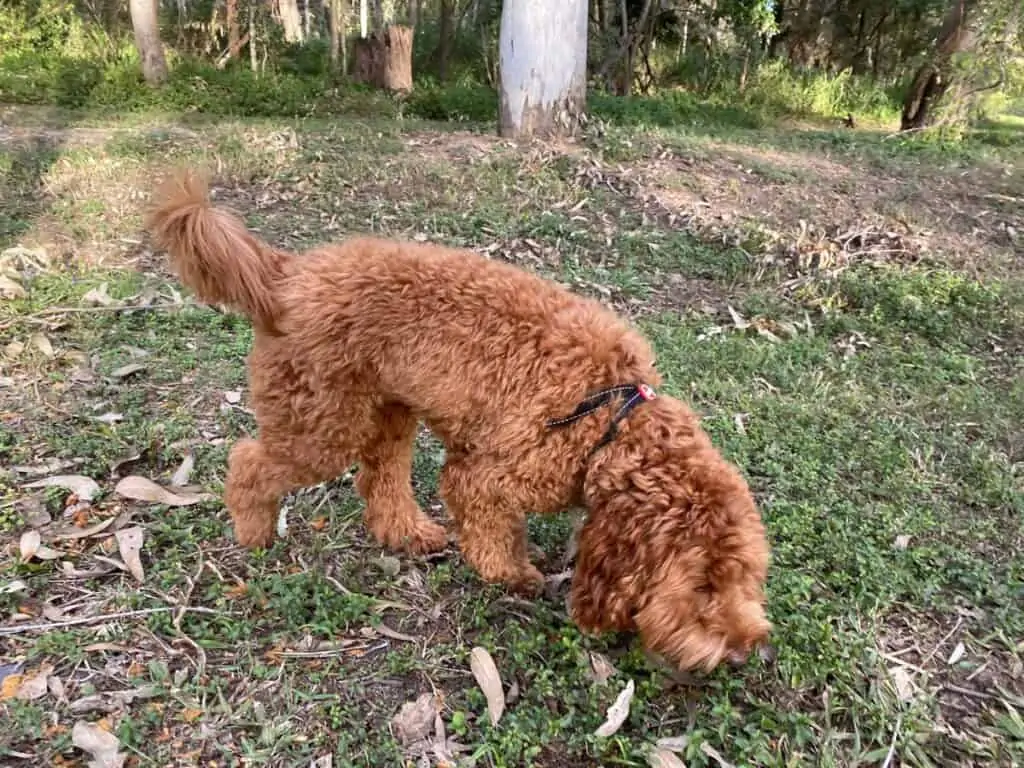What Time Should Puppies Go to Bed?
Like human babies, young puppies need plenty of sleep to help support healthy development. Young puppies require as much as 18 to 20 hours of sleep per day, though this number drops off as they get older.
While it’s important to ensure that puppies get the sleep that they need to grow, there isn’t necessarily a strict bedtime that you need to follow. It’s more important to set up a schedule that allows both you and your puppy a night of uninterrupted sleep.
Here, I’m going to discuss how to set up a healthy sleep schedule and get your puppy to bed on time.

The Importance of a Good Night’s Sleep
Sleep is especially important for young puppies because it helps support healthy growth. Plenty of sleep is crucial for developing brains, muscles, immune systems, and nervous systems. Long rest periods give a puppy’s body the chance to go through growth spurts during rapid development.
A puppy may experience stunted growth and other developmental delays without enough sleep. A sleep-deprived puppy will also have a weaker immune system, making it more susceptible to disease and infection. What’s more, just as with humans, a sleepy dog may be prone to mood shifts.

How Much Sleep Does My Puppy Need?
The amount of sleep puppies need differs based on factors such as age and activity level. Younger puppies typically need more sleep than older ones, and active puppies may need more rest to recharge after a play session. However, there are general rules of thumb that you can follow when it comes to sleep requirements.
Birth to Eight Weeks
Very young puppies need to sleep most of the day to support brain development. In most cases, puppies up to eight weeks old will sleep between 18 and 20 hours per day. However, every dog is different.
Some puppies may sleep slightly more or slightly less, but they should still be resting around three-quarters of the day.

Eight to Twelve Weeks
At 12 weeks, a puppy will still be sleeping for the majority of the day. Most puppies will continue their pattern of sleeping 18 to 20 hours per day, though some may start staying awake for longer hours.
When puppies this age are awake and alert, they tend to be incredibly energetic. It’s good to encourage healthy activity levels, as they encourage deep sleep afterward.

Twelve Weeks to Six Months
As puppies approach the six-month mark, they will likely start sleeping less. While your dog won’t sleep as much as it did as a young puppy, it won’t be on an adult sleep schedule yet either. Most dogs this age sleep between 16 and 18 hours per day.
Fully mature dogs require between 8 and 13.5 hours of sleep per day.

Setting a Bedtime Schedule
There is no set time you should put your dog down to rest. Puppies can and will fall asleep at any time of day. However, it’s important to take your own sleep schedule into account when training your puppy.
It’s a good idea to ensure that your puppy’s waking hours align with your own. Since puppies are only awake four to six hours out of the day, it’s easy to schedule their sleep routine around your own availability.
It’s also a good idea to plan your puppy’s sleep around their feeding routine. Puppies have small, sensitive stomachs and can’t handle much food at once, so they require multiple meals throughout the day. Puppies under eight weeks old typically need four feedings per day, while those under 12 months need at least three.
You should wake your puppy at the same time each day for mealtimes. It’s also a good idea to include a play session if possible. Most people choose to feed their puppy once in the morning, afternoon, evening, and night.
By waking up your puppy for a total of four to six hours each day, you can help to ensure that it will sleep soundly throughout the night. Always stay consistent with your routine to support better sleep quality. It sets up a safe, predictable, and anxiety-free environment for your four-legged friend.

How to Help Your Puppy Sleep?
Your puppy needs plenty of sleep each day to promote healthy development. If you find your puppy waking you at night, it may lead to bigger problems down the line. What’s more, a restless puppy will also impact the sleep quality of the rest of your household.
Read on to learn some tried and true ways to encourage puppies to fall asleep and stay asleep.
Take a Potty Break Before Bed
Puppies have small bladders and often need bathroom breaks at night, especially when young. Taking your puppy out to use the potty directly before bedtime can help to reduce the number of times your dog gets up in the night to relieve itself.
It’s best to turn the pre-bedtime bathroom break into a routine so that your dog gets used to the idea of emptying its bladder before laying down to sleep. Doing this will carry into adulthood and ensure both you and your dog get an uninterrupted eight hours of sleep each night.

Squeeze in Some Extra Play Sessions
Puppies need plenty of mental and physical stimulation during waking hours to help wear them out for bedtime. You should spend as much time as possible with your puppy when it’s awake to help it sleep more deeply at night.
Include plenty of vigorous play sessions throughout the day with games such as fetch, chase, or tug-of-war. You should also include games that stimulate the mind, such as those involving hidden scents and treats.
Training sessions will also help tucker out a small puppy while teaching it some new tricks. Include a short training session before playtime if you want to give your puppy just a little bit of an extra challenge before bedtime.

Limit Feeding Before Bedtime
While you don’t want your puppy to go to bed hungry, an overly full stomach can be just as much of a problem. Your dog may have sleeping difficulties due to digestive upset. Try to limit feedings to at least an hour before bedtime to allow plenty of time for digestion.
At the same time, don’t feed your dog so far from bedtime that they wake up hungry.

Conclusion
Puppies need hours upon hours of sleep each day to grow big and strong. While there’s no set time that puppies need to go to bed, you should follow a consistent schedule that reflects your own sleep habits and your puppy’s feeding schedule. This way, both you and your dog will be able to get a healthy and uninterrupted night’s sleep.